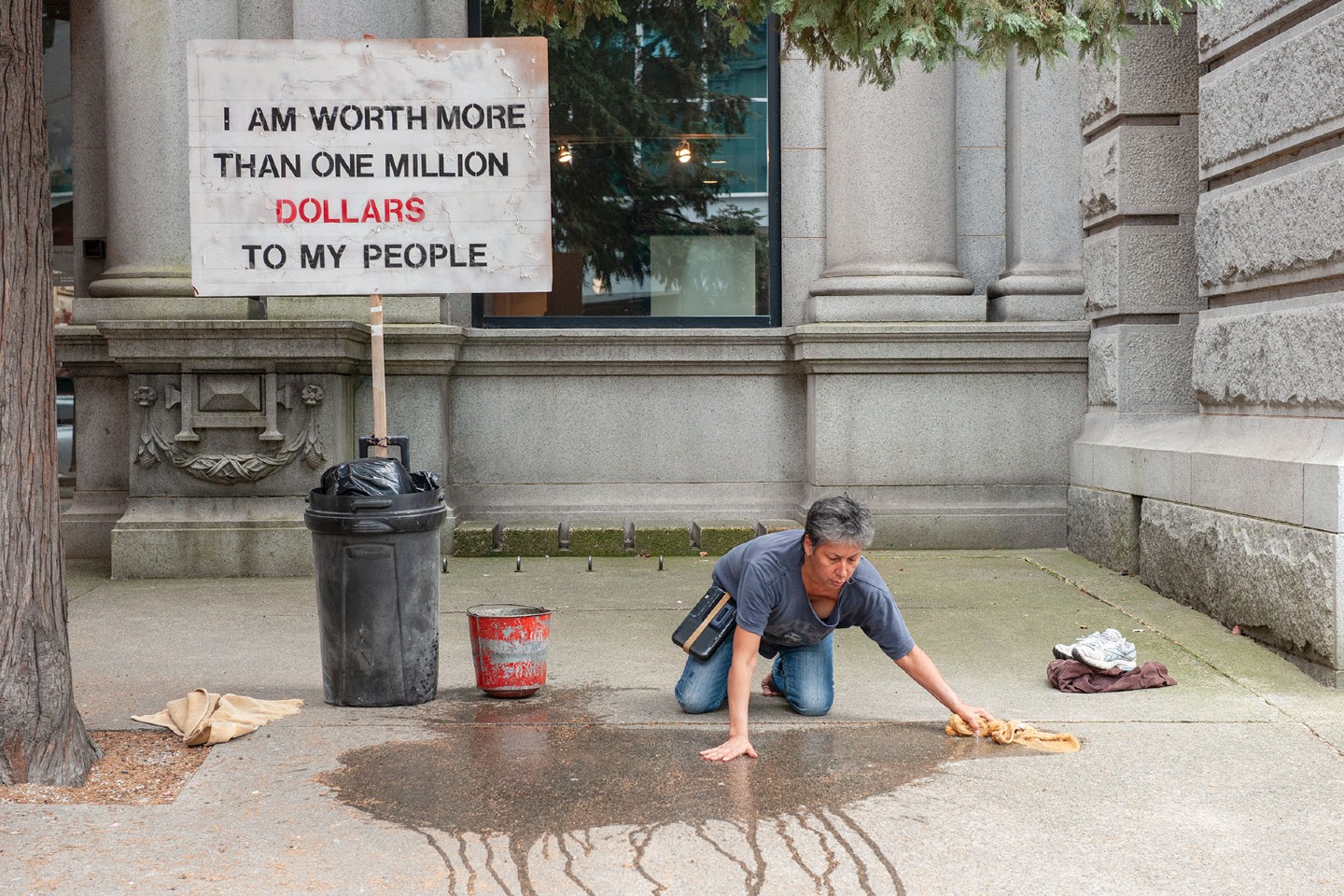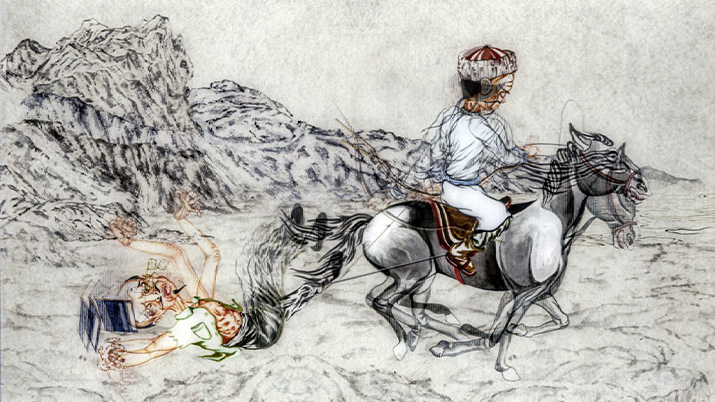Juan Gaitan, a PhD candidate in art history at the University of British Columbia and the co-curator of Exponential Future at the Morris and Helen Belkin Art Gallery, participate.
Thursday, March 27, 8pm
Juan A. Gaitán (curator)
Speakeasy: Frontierism is a series that addresses notions of unchecked urban expansion within a larger consideration of the city. Vancouver has often been characterized as a boomtown that has yet to bust, but the rapid and rabid growth of the city reveals an unhealthy appetite for unchecked development. The frontier is a physical, technological and intellectual place of possibility, an outer limit away from the known centre. While the frontier is often understood as a site of opportunity, frontierism has long been critiqued for its potential repercussions: environmental destruction, racism, poverty, disease and humanitarian regression. Contextualizing this discussion within the past two incarnations of Speakeasy – Serial Space and Territory – the series continues to articulate how civic space is defined and questions whether the urban frontier is spatial, geographic, political, social or economic.
Notes on the Speakers
Thursday, March 27, 8pm
Juan A. Gaitán will participate in a dialogue with Brian Jungen on the production of community through radio, particularly in rural, frontier settings such as Colombia where he is curating an exhibition on the topic.
Gaitán is a Vancouver based art historian and curator. His research interests are the Americas in the post-War period, religious monuments in the early middle ages, and contemporary art. He is a PhD candidate in art history at the University of British Columbia and is the co-curator of Exponential Future at the Morris and Helen Belkin Art Gallery.
Brian Jungen will speak with Juan A. Gaitán his interest in radio’s galvanization of community, specifically in northern, rural communities where he is undertaking a radio project.
Jungen is an internationally acclaimed artist who has solo shows at the Tate Modern, London; Museum Villa Stuck, Munich; Vancouver Art Gallery; Musee d’art contemporain de Montreal; New Museum, New York; Witte de With; Vienna Secession; Contemporary Art Gallery, Vancouver; Casey Kaplan, New York; and Catriona Jeffries Gallery, Vancouver, among others.
Lee Henderson will read from his ahistorical novel, The Man Game, about the origin of a sport invented in Vancouver in the 1800s that combines wrestling, street fighting, ballroom dancing, martial arts, and gambling, and is played by unemployed lumberjacks. The novel follows Vancouver’s founding fathers, race riots, red light districts, opium trade, and deforestation.
Henderson wrote The Broken Record Technique (2002) and his fiction and visual art journalism has been published in numerous journals and magazines.
The Man Game will be published by Viking/Penguin (2008). He is a contributing editor to Border Crossings and Contemporary, and has curated exhibitions in Vancouver and New York. He is the director/curator of Attache Gallery, a portable art gallery that shows emerging artists.
Friday, March 28, 8pm
John Atkin will speak about Vancouver from its inception to the present, identifying relationships between developers and the City in order to define its “frontier” nature.
Atkin is an author, historian and heritage advocate who offers offbeat insights into Vancouver’s architecture, history and neighbourhoods. He has created, and conducts, unique and popular walking tours throughout Vancouver. He is also the editor of British Columbia History: The Journal of the British Columbia Historical Federation.
Mari Fujita will discuss Vancouver via various readings of territory to understand how Vancouver engages with larger spheres of influence.
Fujita is a designer and educator. Her research examines material processes, the shifting role of the architect in the present cultural, economic, political, and technological climate, as well as notions of territory and emergent forms of urbanism in developing cities. Her design practice FUJITAWORK pursues a diverse range of projects, including projects small-scale gallery installations, building designs, and urban scale interventions that have been exhibited at Cooper Hewitt Museum, Storefront for Art and Architecture (NY) among others.
Meredith Quartermain will read from her forthcoming collection entitled Nightmarker (NeWest, 2008). Against the ghostly presence of George Vancouver’s explorer narratives, Nightmarker finds interest in the city and its early histories. In expeditions to City Hall, the police station, the sugar refinery, and the courthouse, and ramblings in between, Quartermain explores the human city as an animal behaviour, a museum, and a dream of modernity.
Quartermain’s Vancouver Walking won the BC Book Awards 2006 Prize for Poetry. Books include The Eye-Shift of Surface, Wanders [with Robin Blaser], and A Thousand Mornings, prose poems about old Vancouver’s dockside area.
Her work has appeared in The Walrus, Canadian Literature, the Literary Review of Canada, Matrix, The Capilano Review, West Coast Line, filling Station, Prism International, and other magazines.

